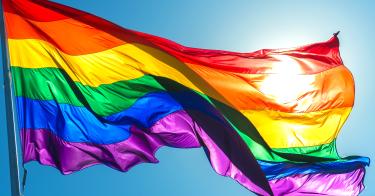Monday’s 7-2 Supreme Court decision in Masterpiece Cakeshop v. Colorado Civil Rights Commission is a big win for the religious liberty of all Americans. The court made it clear that hostility toward religion has no place in America, least of all in our government.
At the center of Masterpiece Cakeshop is Jack Phillips, the Christian cake artist who can’t in good conscience design and create custom wedding cakes that celebrate same-sex marriages. The court held that the state of Colorado was “neither tolerant nor respectful” of Phillips’s beliefs about marriage. The court pointed out that the Colorado Civil Rights Commission showed “clear and impermissible hostility toward the sincere religious beliefs motivating his objection.”
But as the court also noted “religious and philosophical objections to gay marriage are protected views and in some instances protected forms of expression.”
Which is why the Colorado Commission should have respected Phillips’s views about marriage on an equal basis as they did three bakers who declined to bake anti-gay cakes. The commission ruled that these three bakers did not violate the anti-discrimination statute when they declined to make cakes with religious messages opposing homosexuality. And yet the commission held that Phillips violated the anti-discrimination statute when he declined to create a cake celebrating a same-sex wedding.
But as Justice Neil Gorsuch notes (in a concurring opinion joined by Justice Samuel Alito), either all four bakers violated the Colorado anti-discrimination law, or none did. Gorsuch writes:
[T]here’s no indication the bakers actually intended to refuse service because of a customer’s protected characteristic. We know this because all of the bakers explained without contradiction that they would not sell the requested cakes to anyone, while they would sell other cakes to members of the protected class (as well as to anyone else).
As I argue in the Georgetown Journal of Law and Public Policy, “Disagreement is not always discrimination.” And this is true when it comes to disagreements about same-sex marriage.
Phillips didn’t discriminate based on sexual orientation when he refused to design and bake a cake for a same-sex wedding. He didn’t take his customer’s sexual orientation into consideration at all. He declined to use his artistic abilities to create a custom cake to celebrate a same-sex wedding because he objected to same-sex marriage, based on the common Christian belief that such partnerships (along with many other relationships—sexual and not, dyadic and larger, same-sex and opposite-sex) aren’t marital.
Nowhere need Phillips’ reasoning have even referred to the partners’ sexual orientation, much less any ideas or attitudes about gay people as a class (good or bad, explicit or not).
It wasn’t his customer’s identity that motivated Phillips at all. It is even clearer that Phillips’ reason for refusing to bake the wedding cake was not the invidious discrimination of avoiding contact with others on equal terms. As Phillips said to the same-sex couple, “I’ll make you birthday cakes, shower cakes, sell you cookies and brownies, I just don’t make cakes for same-sex weddings.” He sought only to avoid complicity in what he considered one distortion of marriage among others—as shown by his refusal to create divorce cakes as well.
By and large, such refusals simply reflect what the Supreme Court in Obergefell recognized as a disagreement about marriage among people of good faith motivated by honorable premises. Applying anti-discrimination policy here amounts to an enforcement of sexual orthodoxy on reasonably disputed questions: It punishes people for acting on reasonable views of marriage. But this is an abuse of anti-discrimination policies, which, as I explain, should serve as “shields, not swords.”
Americans should be free to live their lives, including at work, in accordance with their belief that marriage unites husband and wife. Congress and the states should make this crystal clear by passing legislation, such as the First Amendment Defense Act, which explicitly prevents the type of government intolerance that took place in Colorado.
Just as we’ve combatted sexism without treating pro-life medicine as sexist, so too we should not treat support for marriage between a man and a woman as anti-gay. Pro-life conscience protections do not undermine Roe v. Wade or women’s equality. Neither do conscience protections for conjugal-marriage supporters undermine Obergefell or LGBT equality. Both protect the human dignity and human rights of those who dissent from prevailing social norms. Both promote the common good as shields, not swords.
This piece originally appeared in the Daily Signal



